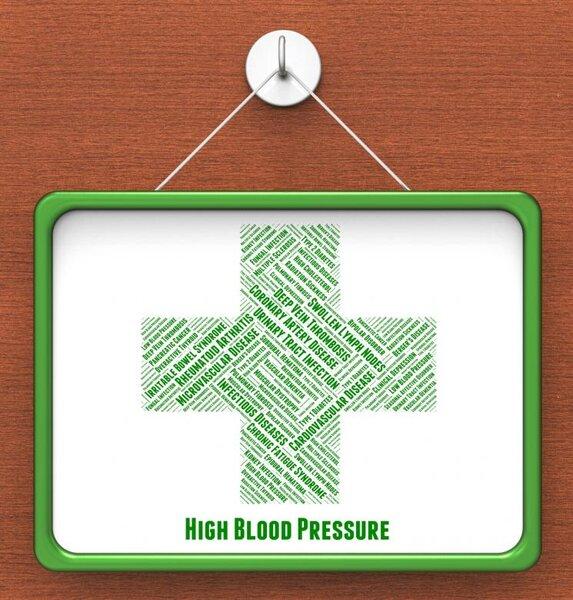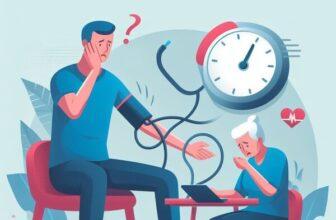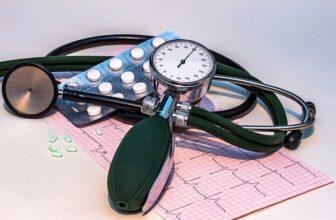
(Note: Some of the links in this post are affiliate links, and we will be compensated when you make a purchase by clicking through our links at no additional cost to you.)
In the hustle and bustle of modern life, health often takes a backseat to our daily commitments. One crucial aspect of our well-being that we can’t afford to ignore is our blood pressure. High blood pressure, also known as hypertension, is a silent yet potentially dangerous condition that affects millions of people worldwide. In this post, we’ll go into what high blood pressure is, how it feels, its causes, and most importantly, how you can manage it to lead a healthier life.
What is High Blood Pressure?
High blood pressure occurs when the force of the blood against the walls of your arteries is consistently too high. It’s often referred to as the “silent killer” because it usually doesn’t present any symptoms until it has reached a dangerous level. Blood pressure is measured in millimeters of mercury (mmHg) and is recorded as two numbers: systolic pressure (the higher number) and diastolic pressure (the lower number).
- Systolic Pressure: This is the pressure in your arteries when your heart beats and pumps blood.
- Diastolic Pressure: This is the pressure in your arteries when your heart is at rest between beats.
A normal blood pressure reading is around 120/80 mmHg. However, when these numbers consistently climb to 130/80 mmHg or higher, you’re entering the realm of high blood pressure.
How Does High Blood Pressure Feel?
Interestingly, high blood pressure is often asymptomatic in its early stages. This means that you might not feel anything unusual even if your blood pressure is elevated. However, as the condition progresses, certain symptoms and effects may manifest:
- Headaches: While not a consistent symptom, some individuals with high blood pressure may experience persistent headaches, particularly in the morning.
- Shortness of Breath: High blood pressure can lead to the narrowing of blood vessels in the lungs, causing breathlessness even with mild physical exertion.
- Dizziness or Lightheadedness: Impaired blood flow to the brain can result in feelings of dizziness or lightheadedness.
- Chest Pain: Also known as angina, chest pain can occur due to reduced blood flow to the heart muscles.
- Vision Problems: Blurred vision or even vision loss can be a result of damage to the blood vessels in the eyes.
- Fatigue: Reduced blood flow due to weakened or damaged blood vessels means less oxygen and nutrients reach your organs and muscles, leading to fatigue and weakness.
- Irregular Heartbeat: High blood pressure can disrupt the normal rhythm of your heart, causing palpitations or irregular heartbeats.
- Blood in Urine: In severe cases, high blood pressure can damage the blood vessels in the kidneys, leading to blood in the urine.
It’s important to note that experiencing these symptoms doesn’t definitively confirm high blood pressure, as they can overlap with other conditions. The best way to determine your blood pressure status is through regular monitoring.

What Causes High Blood Pressure?
Understanding the factors that contribute to high blood pressure is essential in managing the condition effectively. Some of the common causes include:
- Unhealthy Diet: Consuming excessive amounts of sodium (salt), saturated fats, and cholesterol can contribute to high blood pressure. These substances can lead to the buildup of plaque in the arteries, restricting blood flow.
- Lack of Physical Activity: Leading a sedentary lifestyle can increase the risk of high blood pressure. Regular exercise helps maintain a healthy weight and promotes efficient blood circulation.
- Smoking: Tobacco products contain chemicals that can damage blood vessels and raise blood pressure. Additionally, smoking reduces oxygen in the blood, putting extra stress on the heart.
- Excessive Alcohol Consumption: Drinking too much alcohol can lead to high blood pressure. It also contributes to weight gain and can interfere with medication effectiveness.
- Stress: Chronic stress can temporarily raise blood pressure. While stress itself may not be a direct cause, unhealthy coping mechanisms like overeating, smoking, or excessive drinking often accompany it.
- Age: Blood pressure tends to increase with age due to the natural stiffening of arteries. However, hypertension is not a normal part of aging.
- Family History: If high blood pressure runs in your family, you might be genetically predisposed to develop the condition.
>>> Read more: Discover the power of nutritious and delicious eating with the Mayo Clinic Diet’s expertly crafted meal plan. Click here.
Managing High Blood Pressure
The good news is that high blood pressure is manageable through lifestyle changes and, if necessary, medical intervention. Here’s how you can take control of your blood pressure:
- Healthy Diet: Adopt a diet rich in whole grains, fruits, vegetables, lean proteins, and low-fat dairy products. Reduce sodium intake by avoiding processed foods and using herbs and spices to flavor your meals.
- Regular Exercise: Aim for at least 150 minutes of moderate-intensity aerobic activity or 75 minutes of vigorous activity per week. Activities like brisk walking, swimming, and cycling can significantly improve your cardiovascular health.
- Weight Management: Maintaining a healthy weight reduces the strain on your heart and blood vessels. Even losing a small amount of weight can have a positive impact on your blood pressure.
- Limit Alcohol: If you drink alcohol, do so in moderation. This typically means up to one drink per day for women and up to two drinks per day for men.
- Quit Smoking: If you smoke, take steps to quit. Your blood pressure will begin to decrease shortly after quitting, and your overall health will improve.
- Stress Reduction: Engage in stress-relief activities such as yoga, meditation, deep breathing, or hobbies you enjoy. Managing stress positively impacts your blood pressure.
- Medication: In some cases, lifestyle changes might not be enough, and your healthcare provider might recommend medication to help control your blood pressure. It’s important to take any prescribed medication as directed.
The Importance of Regular Monitoring
Whether you’ve been diagnosed with high blood pressure or not, regular monitoring is essential. A home blood pressure monitor is a valuable investment. By tracking your readings, you can keep an eye on any fluctuations and provide your healthcare provider with accurate information for better management.
>>> Read more: Discover the most accurate blood pressure monitor for home use. Click here.
High blood pressure might be a silent adversary, but armed with knowledge and lifestyle adjustments, you can prevent it from taking control of your life. By adopting a heart-healthy lifestyle, you’re not only managing your blood pressure but also investing in a future filled with vitality and well-being. Remember, your health is your most precious asset, so prioritize it and take the necessary steps to keep your blood pressure in check. Your heart will thank you for it.







